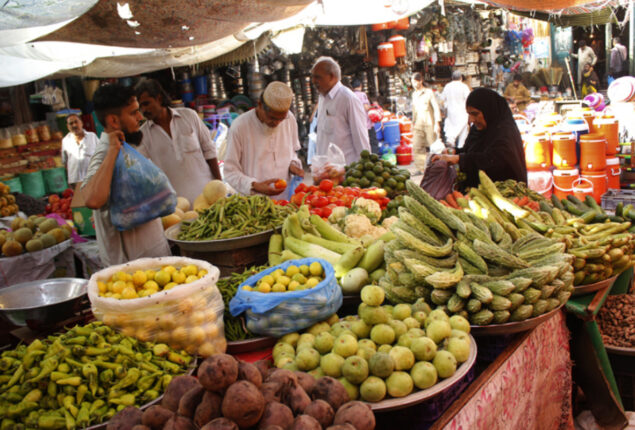Inflation is anticipated to increase by more than 30% in February.

Karachi: Analysts predicted on Monday that the Consumer Price Index (CPI) for February 2023 is likely to show an average inflation rate of 30.5% year-over-year (YoY), up from 27.6% in January 2023 and 12.24% in February 2022.
With this, according to experts at Arif Habib Limited, the average inflation rate for the first eight months of the current fiscal year 2022/23 is 26.04 percent, up from 10.49 percent in the same months of the previous fiscal year.
Food will account for the majority of the YoY increase in the CPI, followed by transport (57% YoY), housing (11.7 YoY), restaurants and hotels (31.3 YoY), domestic equipment (30 YoY), leisure and culture (1.4 YoY), clothing and footwear (16 YoY), and miscellaneous (29.1 YoY).
The CPI figure is predicted to rise 3.52 percent on a MoM basis. We anticipate that the MoM inflation will continue to be under pressure this month, primarily as a result of increases in the food, transit, and housing indices. In January 2023, the food index is predicted to rise by 3.9% MoM.
A rise in the average price of rice, chicken, ghee, fruits, vegetables, and pulses will keep inflation under control, according to data from the Sensitive Price Indicator (SPI) released by the Pakistan Bureau of Statistics (PBS).
On account of higher domestic petroleum product costs, the transportation index is also anticipated to increase by 16.9% MoM.
In the final few months of the current fiscal year, experts anticipate that headline inflation will stay high before slowing down as the new fiscal year gets underway.
Additionally, they anticipate pressure from recent tax increases, weaker currencies against the dollar, and an increase in food costs, as well as any future tariff increases.
A rise in the average price of rice, chicken, ghee, fruits, vegetables, and pulses will keep inflation under control, according to data from the Sensitive Price Indicator (SPI) released by the Pakistan Bureau of Statistics (PBS).
On account of higher domestic petroleum product costs, the transportation index is also anticipated to increase by 16.9% MoM.
In the final few months of the current fiscal year, experts anticipate that headline inflation will stay high before slowing down as the new fiscal year gets underway.
Additionally, they anticipate pressure from recent tax increases, weaker currencies against the dollar, and an increase in food costs, as well as any future tariff increases.





